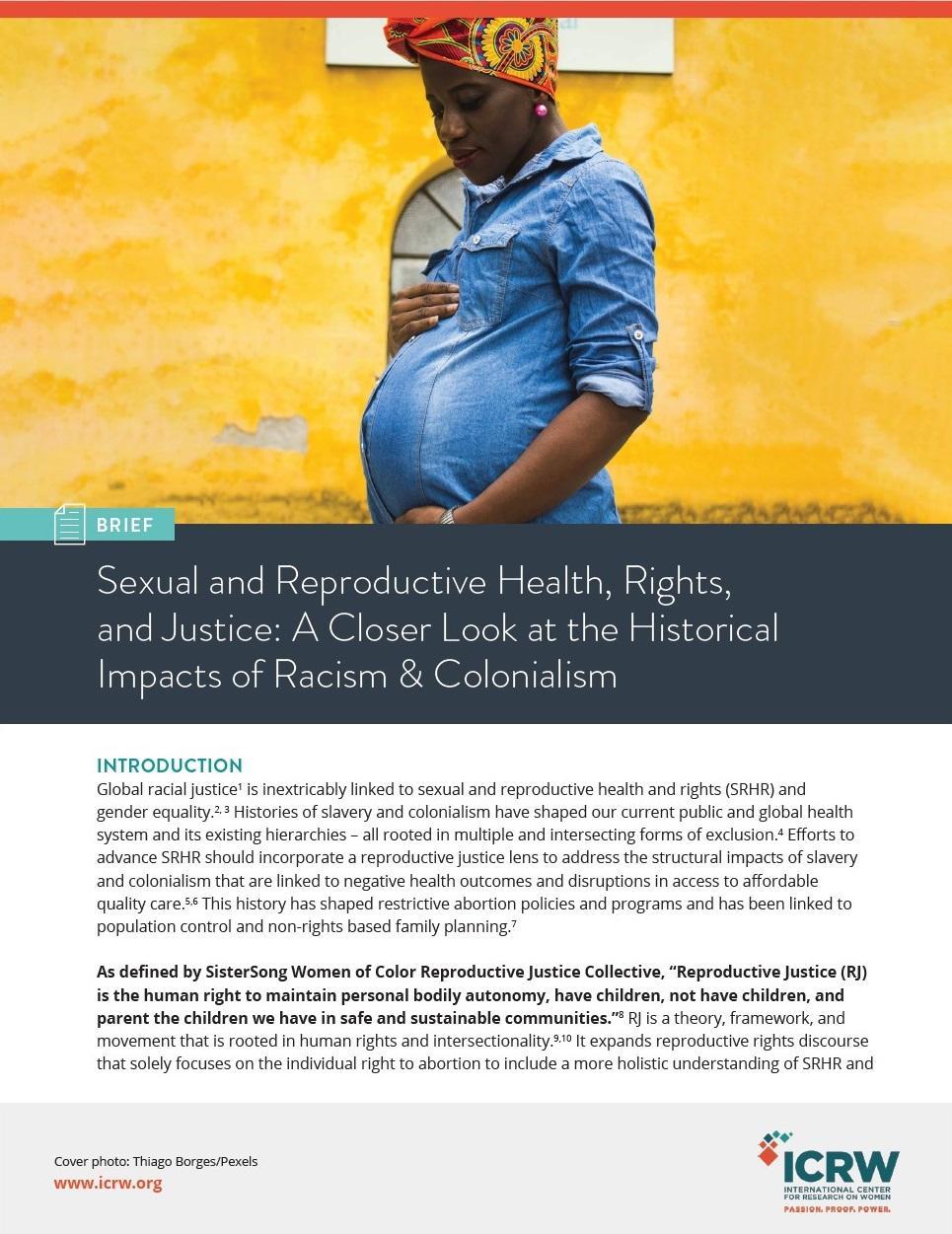As defined by SisterSong Women of Color Reproductive Justice Collective, “Reproductive Justice (RJ) is the human right to maintain personal bodily autonomy, have children, not have children, and parent the children we have in safe and sustainable communities.”
RJ is a theory, framework, and movement that is rooted in human rights and intersectionality. It expands reproductive rights discourse that solely focuses on the individual right to abortion to include a more holistic understanding of SRHR and frame SRHR outcomes in terms of how it impacts individuals and communities. RJ integrates the racial justice movement to understand how systems of racism impact access to sexual and reproductive health (SRH) services. With the COVID-19 pandemic’s impacts falling disproportionately on Black, Indigenous, and people of color (BIPOC) and low- and middle-income countries (LMICs) – along with current global racial justice movements – SRHR initiatives must take a reproductive justice approach and integrate racial justice.
This brief examines the linkages between racism and sexual and reproductive health and rights and outlines specific recommendations the U.S. government can integrate in its foreign policy and assistance to advance progress on the interlinked issues by looking to the global racial justice and reproductive justice movements.
KEY RECOMMENDATIONS
Our review of current literature on global health and racial justice demonstrates that a reproductive justice lens is a critical component in advancing SRHR and gender equality. As access to safe abortion and critical sexual and reproductive health services are increasingly disrupted and politicized, it is imperative that the U.S. Government and SRHR sector integrates intersectionality in funding and policy decisions and reverse harms done domestically and globally.
